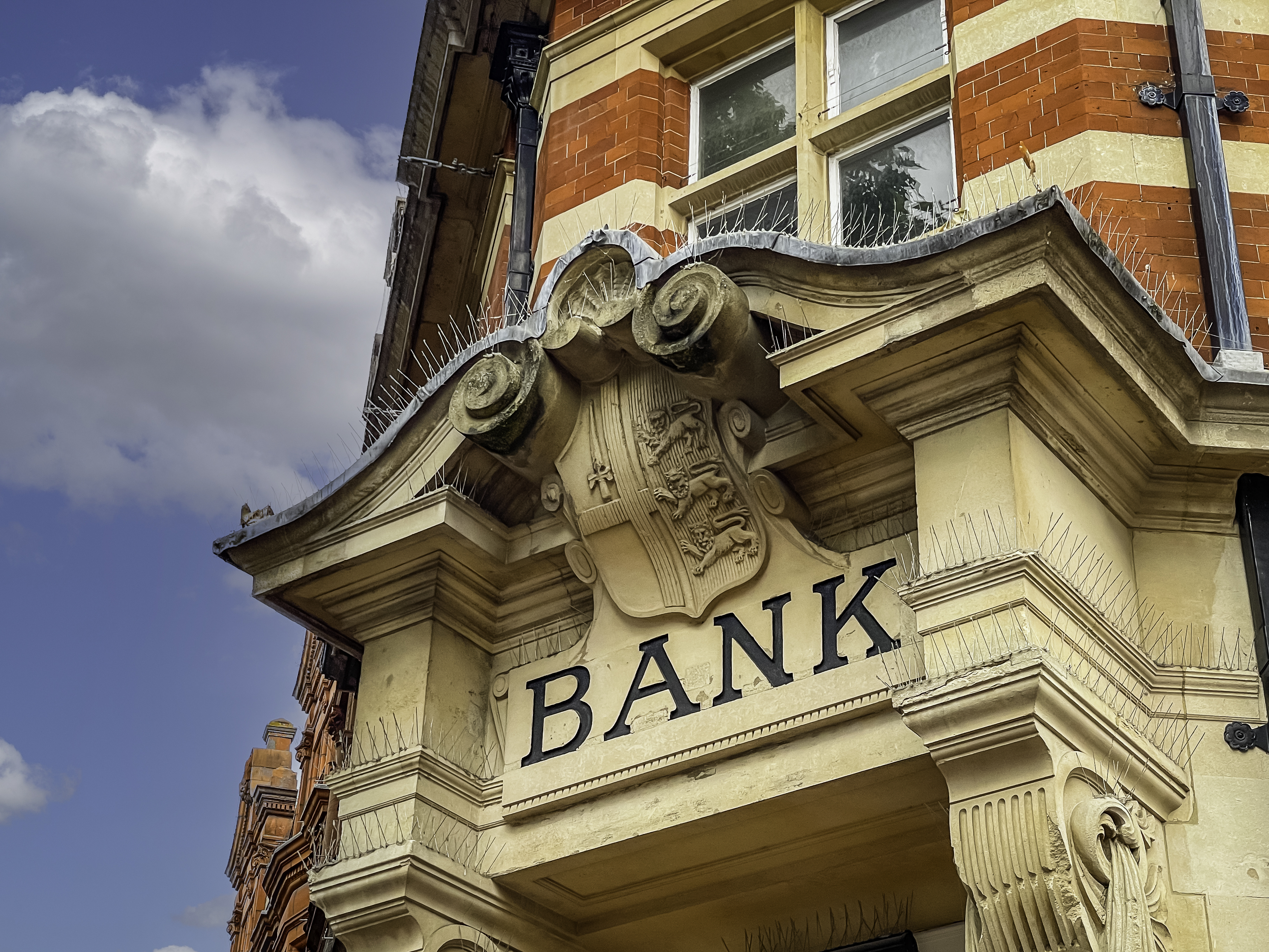Barclays goes on trial
Four former banking executives have been charged with fraud over the bailout of Barclays by Qatar in 2008. Will the trial really be in the public interest? Simon Wilson reports.
Get the latest financial news, insights and expert analysis from our award-winning MoneyWeek team, to help you understand what really matters when it comes to your finances.
You are now subscribed
Your newsletter sign-up was successful
Want to add more newsletters?

Twice daily
MoneyWeek
Get the latest financial news, insights and expert analysis from our award-winning MoneyWeek team, to help you understand what really matters when it comes to your finances.

Four times a week
Look After My Bills
Sign up to our free money-saving newsletter, filled with the latest news and expert advice to help you find the best tips and deals for managing your bills. Start saving today!

Four former banking executives have been charged with fraud over the bailout of Barclays by Qatar in 2008. Will the trial really be in the public interest? Simon Wilson reports.
What's happened?
Four former senior Barclays executives have been charged with fraud over the £6.3bn that Qatar invested in the bank in June and October 2008, to help save it from a UK government bailout. The four are John Varley, 61, who was chief executive at the time of the global financial crisis; Roger Jenkins, 61, who was head of the bank's Middle East operations; Tom Kalaris, 61, the head of the wealth-management division at the time; and Richard Boath, 58, who led the financial-services team. It is the biggest case ever brought by the Serious Fraud Office (SFO), and marks the first time the boss of a global bank has faced criminal charges over events that took place during the crisis.
What are they accused of?
Varley and Jenkins face the most serious charges: two counts of conspiracy to commit "fraud by false representation" in relation to the June and October emergency cash calls totalling £11.8bn, of which Qatar contributed £6.3bn.At the same time as the first investment, Barclays entered into an "advisory services agreement" with Qatar worth £322m, for advice on further opportunities in the Middle East. The SFO believes this agreement was phoney nothing more than a sweetener to the main deal. In addition, the two men face one count of "unlawful financial assistance" over a $3bn loan made by Barclays to Qatar's finance and economy ministry just as the second cash call was closing. The SFO believes that Barclays was lending money to Qatar to be used to invest in Barclays in effect lending to itself which is illegal. The other two men, Kalaris and Boath, are charged with a single count of false representation relating solely to the first cash call.
MoneyWeek
Subscribe to MoneyWeek today and get your first six magazine issues absolutely FREE

Sign up to Money Morning
Don't miss the latest investment and personal finances news, market analysis, plus money-saving tips with our free twice-daily newsletter
Don't miss the latest investment and personal finances news, market analysis, plus money-saving tips with our free twice-daily newsletter
What about the bank?
In addition, in a highly unusual move, Barclays Plc (the holding company that owns Barclays Bank) has also been charged on the same three counts as Varley and Jenkins. This raises the intriguing possibility that the company could plead guilty, but its former executives plead not guilty when the case finally goes to trial in January 2019. The SFO is reported to be still considering whether to charge Barclays Bank in respect of the $3bn loan. Doing so would potentially create even greater problems for Barclays, since it is this part of the group rather than the holding company that has the regulatory permissions and licences that it needs to operate.
Why might these events be crimes?
Because of the need for a level playing field for all investors. If Barclays paid a £322m sweetener in relation to the first cash call, that might not seem like much compared to the wider deal, but it means that they weren't honestly disclosing the real price paid by Qatar for their stock: they were artificially bumping it up a bit to prop up Barclays' share price in the wider market. The same goes for "financial assistance": if a bank lends money to a cornerstone investor as the same time as a fundraising it raises the suspicion that, again, the deal is artificially propping up the share price, as in the Guinness share-trading fraud in the 1980s. Both these things are illegal under the Companies Act 1985.
Do the charges seem fair?
That's one of the intriguing aspects of this case. Even if the allegations are true which remains to be decided there is a certain irony that a British bank that successfully fought to remain fully independent and to avoid the need for the UK government to risk taxpayers' cash is the only one to face charges over the financial crisis. In particular, many in the City are astonished to see John Varley, a banker of the old school known for his decency and impeccable good manners, accused of any wrongdoing at all. Varley was seen by fellow bankers as "a last standard-bearer of rectitude, courtesy and human concern in a City that was changing for the worse", says The Spectator's Martin Vander Weyer, an ex-Barclays employee.
So is the case a waste of time?
Plenty in the City would argue that it is. The second half of 2008 was a time of market panic, the global banking system was teetering and unusual things happened. Credit Suisse did a similar deal with Qatar (lending it money at the same time as it invested) which was permitted by Swiss regulators. Barclays avoided part-nationalisation, leaving it better placed to support the UK economy in the post-crisis years. That's one side of the argument at any rate.
How about the other side?
Critics says that the SFO wouldn't be doing its job if it didn't follow the evidence where it led. This is not a matter of taking a view or making a judgment call. If the SFO thinks it has sufficient evidence to support criminal charges it is duty-bound to bring the case to court. The clear rule of law is one of the things that makes the UK attractive to investors. "Any other course would encourage the idea that banks and bankers can play by different rules from the rest of us," says Nils Pratley in The Guardian.
A victimless crime?
When the four Barclays men appeared at Westminster Magistrates' Court for an initial hearing last month, a "crucial party" was absent, says Bill Jamieson in The Scotsman: the victim of the alleged crime. And that's because there isn't one. Qatar didn't suffer: it made a decent profit on its investment and retains a 6% stake in the bank. Nor did the UK government or taxpayer: we were spared the "serious escalation" of the crisis and public debt obligations that a Barclays bailout would have involved. Barclays customers benefited from the continued confidence that the deal brought. And Barclays investors? Though the Qatari deal was costly, a government rescue could easily have involved a "colossal dilution" of existing shares. That, along with massive collateral damage to investor and depositor confidence in the wider UK banking sector, was avoided by Barclays' swift action. A crime? That's up to the court. Victimless? Arguably so.
Get the latest financial news, insights and expert analysis from our award-winning MoneyWeek team, to help you understand what really matters when it comes to your finances.
-
 How a ‘great view’ from your home can boost its value by 35%
How a ‘great view’ from your home can boost its value by 35%A house that comes with a picturesque backdrop could add tens of thousands of pounds to its asking price – but how does each region compare?
-
 What is a care fees annuity and how much does it cost?
What is a care fees annuity and how much does it cost?How we will be cared for in our later years – and how much we are willing to pay for it – are conversations best had as early as possible. One option to cover the cost is a care fees annuity. We look at the pros and cons.
-
 FCA tells banks to speed up savings rate increases
FCA tells banks to speed up savings rate increasesRecord profits and low savings rates spurred the FCA to meet with some of the UK’s top banks.
-
 The best ways to hire staff in these uncertain times
The best ways to hire staff in these uncertain timesAdvice Taking on permanent staff for your business comes with risks, but there are alternatives says David Prosser.
-
Money Minute Friday 25 October: Banking results and German sentiment
Features Today's Money Minute looks at third-quarter results from Barclays bank and advertising giant WPP, plus German consumer and business sentiment.
-
 Barclays is a strange beast – here's how to make it work
Barclays is a strange beast – here's how to make it workOpinion Barclays is a weird hybrid creature, says Matthew Lynn. But an activist-led shake-up could turn it into a decent bank.
-
Barclays’ snooping scandal
Features Jes Staley, Barclays’ chief executive, tried to unmask the identity of a whistleblower. Bad move, says Ben Judge.
-
Is the gold market rigged?
Features Barclays has been fined £26m after one of its traders manipulated the gold fix. Is it time to overhaul the price-fix system and what are the alternatives? Simon Wilson investigates.